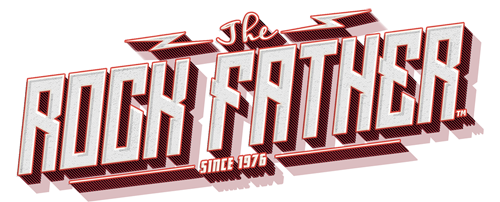 I’m not sure what they’re teaching at colleges these days, but it seems there’s a major disconnect happening when it comes to recent graduates from the media programs out there. They’re clueless.
I’m not sure what they’re teaching at colleges these days, but it seems there’s a major disconnect happening when it comes to recent graduates from the media programs out there. They’re clueless.
It’s no surprise to this college drop-out that the recent factory models seem to come equipped with less bells and whistles than their street-tested non-college counterparts, or that their memory chips seem to be loaded with outdated or vastly corrupt data. Since there’s some bad apples on both sides of the coin we’re discussing, this is a lesson for all of the know-it-alls that think they’re the next big thing when it comes to entertainment ‘journalism’ or ‘photography.’ It’s also a series of bullet-points that you should know, because someone should tell you, and hell… may as well be me. Why? Because if you’re going to hit my inbox with your pitches to solicit work, you better check your ego at the door.
1. Throw your ALMOST FAMOUS fantasies out the window. Do it. Right now.
I’m not sure how certain people can be so utterly immune to the reality of life, but if you haven’t noticed – the music industry has been on a downhill slide for about a decade now. Bands/artists don’t sell millions of records anymore. Sure, there’s the occasional exception for a LADY GAGA or an EMINEM, but the reality is most will be lucky to sell a few thousand records. If you’re into indie rock, metal, or most anything non-top 40, the artists you probably want to cover won’t be riding on a luxury bus – they’ll be packed into a small van where they’ll be praying for a shower, and hoping that they make enough money to eat at McDonald’s after paying for gas to get to their next gig.
2. If you are looking to make a quick buck, writing about music or photographing bands is not the place to do it.
The reality is, you will likely never make enough money to have a career doing either. As noted in point #1,musicians aren’t making a ton of money these days (if they’re making any money), so what makes you think that someone will pay you money to cover their work? With media existing in a primarily online world, you need to do a lot of work to make a little money. To live well, you need a little luck and have to work at near superhuman levels. You must also live your subject. Covering the material is not a part-time job – you want to work in music, you live it.
3. “You are not a beautiful or unique snowflake. You’re the same decaying organic matter as everything else.”
Yes, I stole that from FIGHT CLUB (props to Chuck Palahniuk). You’re a writer? Great, so are 12 million others. You’re a photographer? Great, see “you’re a writer.” By identifying yourself as either, you are instantly lumping yourself among the most replaceable groups of people for a website, magazine, newspaper, etc. There are many of you, and chances are there are many that do what you do better. Yes, you can surpass them and become more successful because, after all, success does not always equal talent, nor does talent equal success.
4. Writer? Sure – but you’re probably not a “journalist.”
People occasionally question why the first line of my “about” paragraph under my articles reads “James Zahn is not a journalist.” The answer is very simple: I’m not. Chances are you’re not either. Take a look at some of your favorite writers from your favorite websites and make note of how many of them are also creatives in the field in which they cover. Those people are not journalists. They might claim that they are, but they’re not.
There was a time that being “a journalist” really meant something, and unfortunately those days are behind us. “Journalist” is a term tossed around almost as much as the word “amazing” – neither have any meaning anymore. Most “music journalists” at this point are musicians filling the gap in work by writing about what they know – music. Most “film journalists” at this point are people that would rather being working in film themselves. Screenwriters, actors, filmmakers – filling the gap by writing about what they know – film. For awhile I worked for a niche publication that dealt primarily in the horror realm. Do a quick Google search for “horror journalist,” and see what you find. You’ll discover a lot of people that have worked in that industry as a creative, but don’t work enough to call it a “career.” They fill the gap by writing about what they know.
5. Be humble, show respect, and listen to those that have experience.
When you are not making your way in the field that you would like to be in, do not force yourself upon those that are – especially when they might be able to offer you valuable insight. Build relationships and really listen. When an editor/prospective employer/etc. tells you ‘X’ and you go and do ‘Y,’ you’re burning yourself. You’re essentially telling that person that you don’t respect their knowledge or position, and that you know better. If you know better, then go do it yourself – somewhere else. Don’t create a problem for someone else, especially someone that didn’t ask for your services.
And those are just a few points…
I could go on about this in vast detail for hours.
For the past few months I’ve been getting bombarded with people seeking paid work, many of them fresh out of college or currently on summer break. What inspired this article is the disgusting sense of arrogance coupled with an increasingly overbearing sense of entitlement from these opportunity seekers. I run a mid-level site that flies under the radar of many, so I can only imagine the madness that the editors of larger sites are faced with. There’s a reason that most of your favorite sites are staffed by a core group of just a few people… reliability and what the site owners can properly afford.
The Bottom Line: Know the game before you play, and be cautious and polite in your approach. Am I a jerk? Maybe, but I’m really just being honest. Otherwise, feel free to call me a “jerk” if you’d like, but do remember that I’m a jerk with a job.




